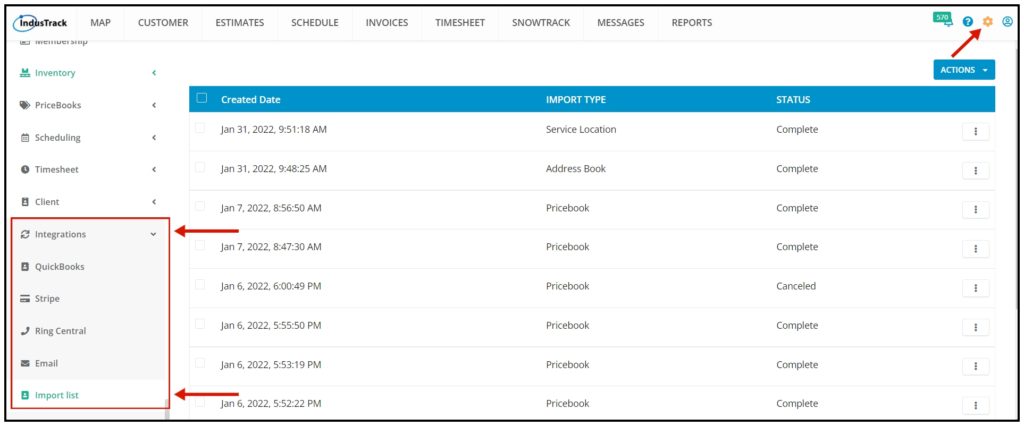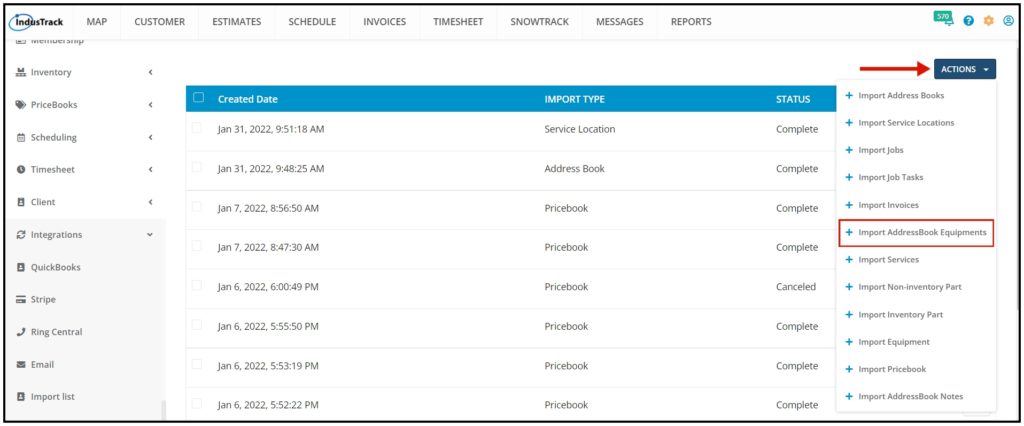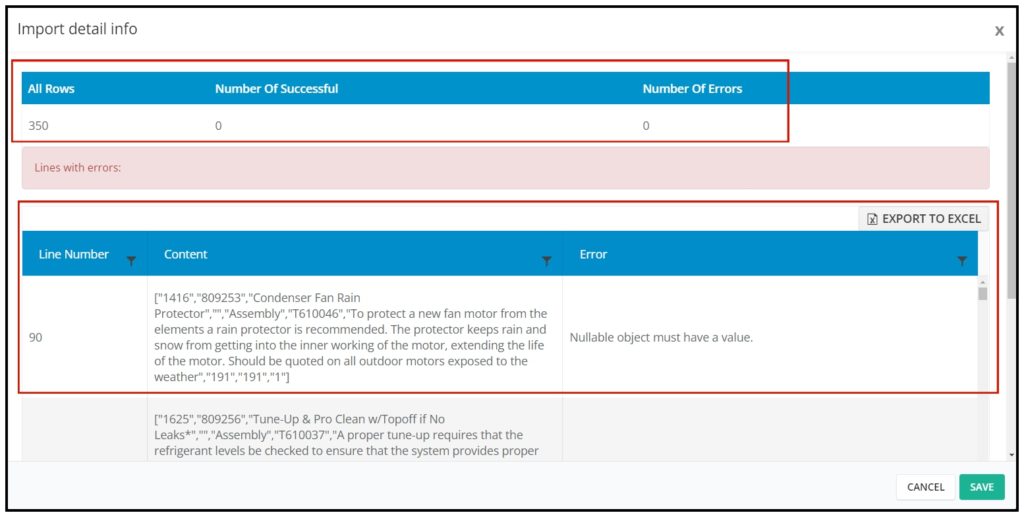Import Addressbook Equipment
Pre-Conditions:
- Customer Addressbook, Service Location, and Jobs have been imported successfully.
- Use the Addressbook Equipment template with the columns in the table below. We need the Customer ID, Service Location ID, and Job ID from the previous import.
- If you are only attaching the equipment to a customer, you will only be needing the Customer ID. You can leave the Service location ID and Job ID blank.
- For the current import, we require the Equipment ID, Type, Manufacturer, and Model.
- Note that the Equipment ID must be filled out. If you don’t have Equipment ID information, you have to generate your own IDs
- The file should not have duplicate records. If it does, please note that they will be imported separately.
- Check for bad data in the file in the Type, Manufacturer column, etc. Bad Data can cause an unsuccessful import.
- Make sure to delete the column names before you import them into Industrack. Otherwise, it will cause issues during the import.
- Please note that all dates that are on your file should be in mm/dd/yyyy format in order for it to be imported successfully.
IMPORT ADDRESSBOOK EQUIPMENT TEMPLATE

How to Import Addressbook Equipment
- Go to Settings > Integrations > Import List > ACTIONS > Addressbook Equipment.

On the Import List Page click on Actions, and on the drop-down select Import Addressbook Equipments.

2. An Import Addressbook Equipment window will pop up. Select your Timezone, Click Upload and select the correct Excel file to be imported.

3. Map the corresponding column names in the file then click Save.

4. After the file has been uploaded, the status should be COMPLETE. To verify if the upload is successful, click on the 3 dots beside status and click details.
Note that if the Data has thousands of records, it may take a while for the status to change into COMPLETE.

5. By clicking on details, if all rows were successfully imported you should be able to see it here. The number of All Rows and the number of successful rows should match.

6. If all Rows were successfully imported, do a spot check in the Customer Module> select certain customer> invoices tab, and verify the information imported is ACCURATE.
7. If unsuccessful, rows with the error will not be uploaded and the number of successful rows will not be the same as the total number of rows in the file. This is what happens if you import files with Bad Data.

8. You will be able to see the line number in your file where the error is located and the line’s content. The detail of the error is also explained in the error tab.
9. You can export the error detail to excel and determine what is causing the error.
10. After the error is determined, edit your Invoice File remove bad data then reimport it back again.
0 Comments